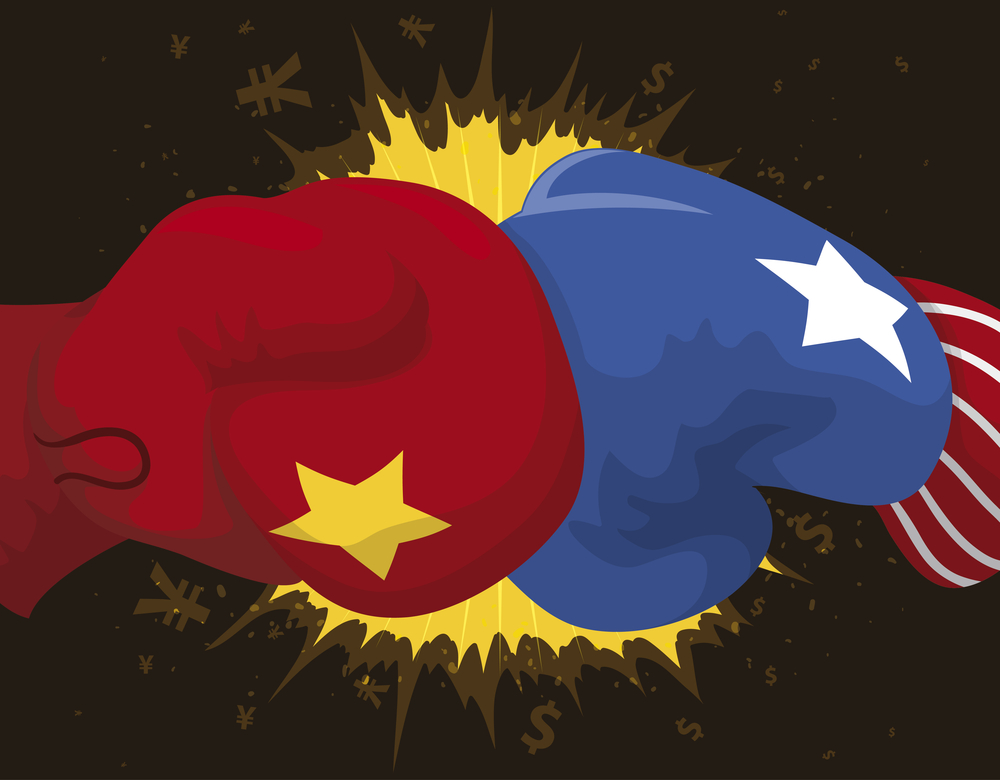
On Thursday morning, China’s threat to back out of the phase one trade deal with the United States is being met with a muted reaction on Wall Street. Despite, clichéd headlines of the markets being “spooked” on Halloween, the major exchanges only moved slightly lower to start the trading session. This was in sharp contrast to the recent past.
Typically when China has made bellicose statements, whether threatening to impose additional sanctions or, in this case, threatening to walk away from the talks altogether, the markets have moved sharply to the downside. It was not uncommon to see the exchanges drop by hundreds of points on a single Tweet from President Trump.
Why is this time different? And does it matter?
I believe there is a “trade fatigue” setting into the markets. Lower interest rates are acting as a form of stimulus for U.S. equity markets. So for now, investors can afford to be patient. Particularly since the economic malaise that is infecting global economies is not yet on display in the United States.
Are the markets seeing the forest through the trees?
There is a growing belief (being promulgated by the Trump administration) that China needs this deal more than the United States. On the one hand, that stubborn thing called math works in favor of that argument. The rate of growth in the Chinese economy is declining.
But the “official” numbers coming out of China should always be taken with a grain of salt. The Chinese government and the Chinese economy are inexorably linked. And there is little doubt that China will do what it takes to bolster its economy.
However, in my opinion, the idea that China needs this deal more than the United States is flawed in its premise. And it shows that many investors don’t understand the magnitude of the issues in this trade war.
China wants a resolution to the trade war, not a deal
There is no doubt in my mind that China wants the trade war and the related tariffs to go away. But that doesn’t mean they want a “deal”. At least not in the way we think about a deal in the Western world.
“Saving face” is a significant element of Chinese culture. This is being reflected in their recent statements that they don’t trust President Trump to hold up the U.S. end of the bargain. Statements like that reflect unease with the President’s straightforward public rhetoric.
But the most contentious issues in the trade war, the issues that are not a part of phase one are the issues that are the most significant. And the ones that China is least likely to let go of.
The open hand versus the closed fist
For decades, the United States handled China with a sort of benign neglect. There has been a reciprocal relationship whereby they have purchased a significant amount of U.S. Treasury instruments to finance our country’s growing debt. In turn, the U.S. has looked the other way as the Chinese have infringed on the intellectual property of many U.S. companies. This has resulted in China being able to “copy” many U.S. products and export them to our country at significantly lower prices.
Now, the United States is trying to reverse this uneasy status quo and China is digging in. This reminds me of a parenting analogy contrasting the open hand with the closed fist. When children are young, it is appropriate that parents don’t allow children to do everything they want to do, for their protection (the closed fist). As they get older and display their ability to handle additional responsibility, parents open the hand. The model doesn’t work the other way. If children get too much too fast, it is virtually possible to “put the toothpaste back in the tube”.
And that’s where we’re at with China. After years of letting the Chinese operate with impunity, the United States is trying to rein them in. The 60% that is being bantered about in phase one is window dressing. The real issues of intellectual property, technology, and Huawei are strategically, politically and culturally important to China. They are not going to allow the U.S. to put the toothpaste back in the tube.
Will there be a trade deal before 2021?
The United States is getting ready to enter an election year. President Trump is facing an impeachment hearing in Congress. China has been patient in the past, and I expect they will remain patient now. Whatever happens, with the initial phase of the trade deal is not going to create a movement for permanent change. If the protests in Hong Kong are teaching us anything it’s that the principles of the Chinese government are not going to be open to Western ideas of democracy any time soon.
Investors are becoming increasingly wary of the trade war. They want some deal, any deal. But without a deal on the major issues, any deal is really just a settlement. That, unfortunately, seems to be exactly what China would like.
Before you make your next trade, you'll want to hear this.
MarketBeat keeps track of Wall Street's top-rated and best performing research analysts and the stocks they recommend to their clients on a daily basis.
Our team has identified the five stocks that top analysts are quietly whispering to their clients to buy now before the broader market catches on... and none of the big name stocks were on the list.
They believe these five stocks are the five best companies for investors to buy now...
See The Five Stocks Here
Discover the next wave of investment opportunities with our report, 7 Stocks That Will Be Magnificent in 2025. Explore companies poised to replicate the growth, innovation, and value creation of the tech giants dominating today's markets.
Get This Free Report
Like this article? Share it with a colleague.
Link copied to clipboard.